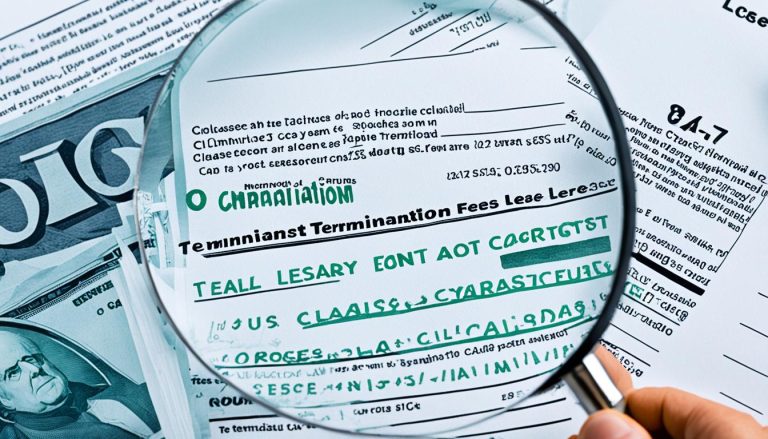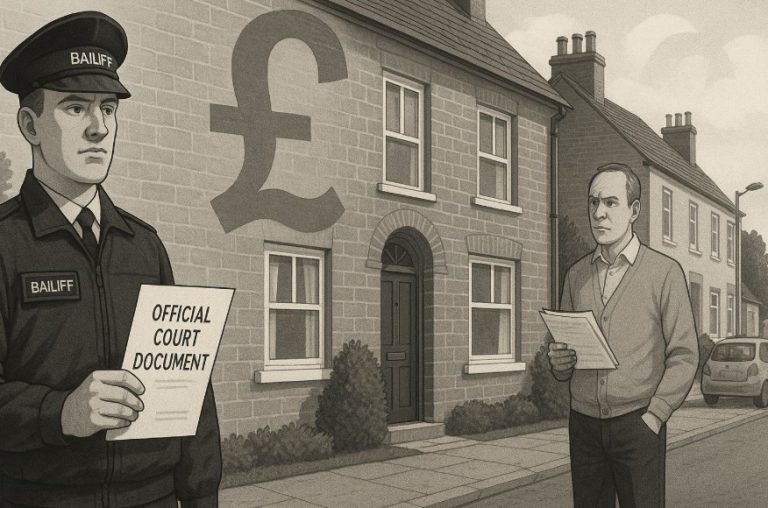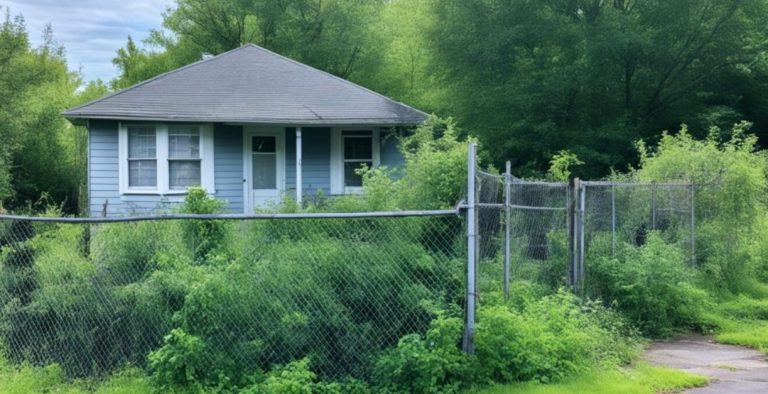Do you know your rights as a housing association tenant in the UK? With a vast network of over 2.5 million homes, housing associations play a crucial role in providing affordable housing and ensuring a harmonious living environment for their tenants. But what exactly are the rules and regulations that govern these properties, and how can you ensure you’re meeting your obligations as a tenant? Let’s delve into the intricacies of housing association policies and uncover the answers to these pressing questions.
Housing associations are non-profit organisations that provide affordable rented accommodation in the United Kingdom. They are regulated by the Regulator of Social Housing, which sets standards for consumer protection and financial viability. Housing association rules and regulations cover a wide range of tenant obligations, property maintenance guidelines, anti-social behaviour policies, rent payment guidelines, and complaints procedures. It is important for tenants to understand their rights and responsibilities as set out in their tenancy agreement to ensure a positive and harmonious living experience within a housing association property.
Standard of Your Home
Housing associations have a legal obligation to ensure their properties meet certain safety and decent home standards. This includes being free from hazards that pose a serious threat to the health and safety of tenants, being in a reasonable state of repair, and having reasonably modern facilities and amenities.
Safety and Decent Home Standards
Housing association properties must comply with a range of regulations and guidelines designed to protect the well-being of tenants. This includes ensuring properties are free from serious health and safety hazards, such as faulty electrical systems, inadequate fire safety measures, or the presence of dangerous materials like asbestos. Tenants have a right to live in a home that is in a reasonable state of repair, with a properly functioning heating system, adequate insulation, and modern kitchen and bathroom facilities.
Repairs and Maintenance Responsibilities
Tenants are responsible for reporting any issues or concerns about the condition of their home to their housing association. Housing associations, in turn, are required to carry out necessary repairs and maintenance in a timely and efficient manner. Tenants may also have opportunities to get involved in the delivery of maintenance services within their local community, helping to ensure the upkeep of their housing association’s properties.

Housing Association Rules and Regulations UK
Housing association rules and regulations cover a comprehensive range of tenant obligations, property maintenance guidelines, and procedures for addressing issues such as anti-social behaviour, rent payment, and complaints. Tenants must familiarise themselves with the terms of their tenancy agreement and the policies and procedures of their housing association to ensure they can fully exercise their rights, meet their responsibilities, and maintain a positive and harmonious living environment.
Tenant Obligations
Housing association rules and regulations outline a variety of tenant obligations, including keeping the property in good condition, adhering to rules around alterations, subletting, and pet ownership, and behaving in a way that does not cause nuisance or annoyance to neighbours. Tenants must take responsibility for their actions and ensure they do not infringe on the rights of other residents within the housing association property.
Property Maintenance Guidelines
Housing associations also have guidelines for property maintenance, which may include requirements for tenants to carry out basic repairs and report any issues promptly. Tenants are expected to take reasonable care of their home and maintain it in a clean and tidy condition, in line with the housing association’s standards. Failure to adhere to these guidelines may result in enforcement action or additional charges.
Anti-Social Behaviour Policies
Housing associations have clear policies in place to address anti-social behaviour, which can include disruptive, criminal, or nuisance activities that negatively impact the local community. These policies outline the steps the housing association can take to investigate and resolve such issues, which may ultimately lead to enforcement action or even eviction in the most serious cases. Tenants are expected to respect their neighbours and refrain from any behaviour that could be considered anti-social.
Rent and Charges
As a tenant living in a housing association property, you are required to pay rent in accordance with the terms outlined in your tenancy agreement. Housing associations in the UK typically provide clear rent payment guidelines that specify the due date, accepted payment methods, and the consequences of falling into rent arrears.
Rent Payment Guidelines
Most housing associations expect tenants to pay their rent on a weekly or monthly basis, with payment due on a set date. Acceptable payment methods may include direct debit, standing order, online payment, or payment at local Post Offices or PayPoint outlets. Failing to pay rent on time can result in the housing association taking formal action, which could ultimately lead to eviction. It is crucial for tenants to familiarise themselves with the rent payment guidelines and to ensure they meet their financial obligations to maintain a secure tenancy.
Service Charges and Additional Fees
In addition to the basic rent, housing association tenants may also be required to pay service charges to cover the cost of maintaining communal areas and providing services such as cleaning, gardening, or communal heating. These charges are typically outlined in the tenancy agreement and can vary depending on the size and location of the property, as well as the specific services provided by the housing association. Tenants should carefully review all additional fees and charges to ensure they understand the full financial commitment associated with their tenancy.

| Rent Payment Requirement | Typical Housing Association Guidelines |
|---|---|
| Rent Due Date | Weekly or monthly, with a set payment date |
| Accepted Payment Methods | Direct debit, standing order, online payment, or in-person at local Post Offices or PayPoint outlets |
| Consequences of Rent Arrears | Formal action by the housing association, which could lead to eviction |
| Service Charges | Additional fees to cover the cost of maintaining communal areas and providing services |
Complaints and Disputes
As a housing association tenant, you have the right to make a formal complaint if you are dissatisfied with the service you have received or believe the housing association has failed to meet its obligations. The formal complaints procedure typically involves an initial investigation, followed by a more comprehensive review, and the possibility of referral to the Housing Ombudsman Service if the matter cannot be resolved internally.
Formal Complaints Procedure
The first step in the complaints process is to submit your complaint directly to the housing association. This can usually be done via their online portal, by email, or in writing. The housing association will then conduct an investigation into the issue and provide you with a response, outlining any actions they plan to take. If you remain unsatisfied with the outcome, you can request a formal review, which may involve an independent panel or a senior manager within the organisation.
Dispute Resolution Mechanisms
In addition to the formal complaints procedure, housing association tenants may also be able to access dispute resolution mechanisms, such as mediation, to address issues related to their tenancy or the condition of their home. Mediation involves an impartial third party facilitating a discussion between the tenant and the housing association to find a mutually agreeable solution. This can be a quicker and more collaborative way to resolve disputes, compared to pursuing a formal complaint.
By understanding the complaints and dispute resolution processes available to them, housing association tenants can ensure their concerns are heard and that appropriate action is taken to address any issues or problems they are facing. Engaging with these mechanisms can help to maintain a positive and constructive relationship between tenants and their housing provider.

Tenant Involvement and Participation
Housing associations are required to provide opportunities for tenant engagement and involvement in decision-making processes. This allows tenants to actively contribute to the management and improvement of their homes and communities. Some of the key ways in which housing association tenants can get involved include:
Opportunities for Tenant Engagement
Tenants may have the chance to participate in various forums and resident associations, where they can share their feedback, concerns, and ideas directly with the housing association. These platforms enable tenants to voice their opinions and collaborate with the housing provider on matters such as service delivery, property maintenance, and community initiatives.
Tenant Scrutiny and Accountability
Tenants can also play an active role in scrutinising the housing association’s compliance with regulatory standards and holding it accountable for the quality of its services and the management of its properties. This may involve participating in performance monitoring, reviewing policies and procedures, and providing input on the housing association’s strategic priorities and decision-making processes.
By engaging with their housing association and contributing to the decision-making, tenants can help ensure that their needs and priorities are reflected in the management and development of their homes and communities. This collaborative approach can lead to improved service quality, increased tenant satisfaction, and a more responsive and accountable housing association.
Conclusion
The comprehensive rules and regulations governing housing associations in the UK provide a crucial framework for ensuring the rights and responsibilities of both tenants and housing providers are upheld. By familiarising themselves with the details of their tenancy agreement and the policies and procedures of their housing association, tenants can navigate their living situation with confidence, exercise their legal rights, and contribute to the overall quality of their housing community.
From understanding tenant obligations and property maintenance guidelines to navigating anti-social behaviour policies, rent payment guidelines, and complaints procedures, this guide has aimed to equip readers with the knowledge necessary to thrive within a housing association property. By actively engaging with their housing association and taking an interest in the right to buy, allocations policy, and mutual exchange opportunities, tenants can shape the future of their homes and communities.
Ultimately, the rules and regulations of housing associations in the UK are designed to protect the interests of tenants, promote social cohesion, and ensure the efficient and responsible management of affordable housing stock. By embracing these standards, tenants can enjoy the benefits of secure, well-maintained accommodation and contribute to the ongoing success of the housing association sector.
FAQ
What are the key rules and regulations that govern housing association properties in the UK?
Housing association rules and regulations cover a wide range of tenant obligations, property maintenance guidelines, anti-social behaviour policies, rent payment guidelines, and complaints procedures. These rules are designed to ensure a positive and harmonious living experience for tenants within a housing association property.
What are the different types of tenancies offered by housing associations?
Housing association tenants can be offered different types of tenancies, including starter tenancies, assured tenancies, and fixed-term tenancies. Each type of tenancy has its own set of rights and responsibilities for the tenant.
What are the safety and decent home standards that housing associations must meet?
Housing associations have a legal duty to ensure their properties meet certain safety and decent home standards, including being free from hazards that pose a serious threat to health and safety, being in a reasonable state of repair, and having reasonably modern facilities.
What are the tenant obligations when it comes to property maintenance?
Tenants are responsible for keeping their property in good condition, adhering to rules around alterations, subletting, and pet ownership, and reporting any issues or concerns about the condition of their home promptly.
How do housing associations handle rent payments and service charges?
Housing association tenants are required to pay rent in accordance with the terms of their tenancy agreement. Rent payment guidelines typically outline the due date, accepted payment methods, and the consequences of falling into rent arrears. Housing associations may also charge additional service charges to cover the cost of maintaining communal areas and providing services.






